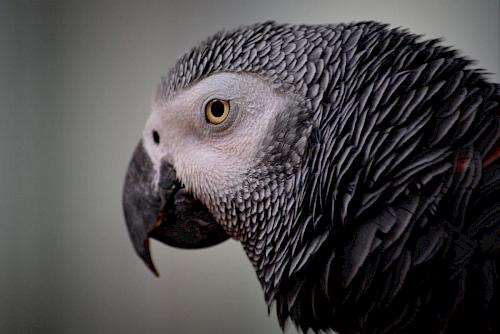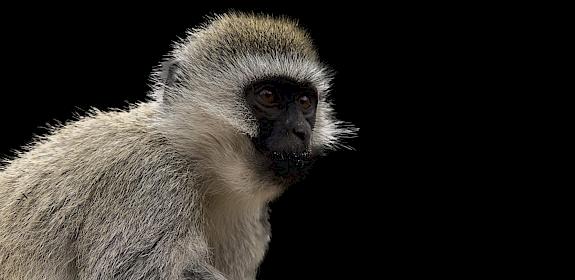Two wildlife traffickers sentenced to five months imprisonment
Cameroon, Feb 2022 - Two wildlife traffickers were prosecuted for the illegal possession and trafficking of nine protected species, including three African grey parrots and six pink-ringed parakeets.
They were sentenced to five months imprisonment by the Court of First Instance in Yaoundé on 27 August 2021. Law enforcement, including arrests and prosecutions, is part of the Cameroon government's strategy to deter illegal wildlife trade.
This decision should erase the misconception that wildlife crime involves only very iconic species like lions, chimpanzees, and elephants. Perpetrators should be aware that engaging in any illegal activity involving a totally protected (“Class A”) species will leave them at the mercy of the law.”
Legal Assistant to one of TRAFFIC’s lead projects SLECC (Strengthening Law Enforcement Capacity and Collaboration to Combat the Illegal Wildlife Trade in Cameroon)

According to Section 101 of the Cameroon Law No 94/01 of 20 January 1994 to regulate Forestry, Wildlife and Fisheries, “any person found, at any time or any place, in possession of a whole or part of a live or dead class A or B protected animal, as defined in Section 78 of the present law, shall be considered to have captured or killed the animal” and is liable to imprisonment for up to three years and/or a fine of up to 10 million CFA francs.
Already in a report on illegal wildlife trafficking (IWT) published by TRAFFIC in March 2018, it was observed that an estimated 1.3 million live protected species had been trafficked to Asia in the last ten years, leading individuals to constantly "defy" the law so strong is the lure of gain.
Illegal wildlife trafficking is a growing concern as this is a major contributor to animal population decrease and hence the threat of extinction. Through the criminal justice system, Cameroonian wildlife legislation ensures effective enforcement to discourage IWT and related crimes such as trade in arms and money laundering.
TRAFFIC’s Central Africa Programme Director, Denis Mahonghol, confirms and supports these efforts to tackle IWT: "With the Ministry of Forestry and Wildlife (MINFOF), our institutional partner, we are working hand in hand by reinforcing the capacities of the agents in the field and emphasising the exchange and sharing of information to anticipate as much as possible these criminal acts against nature, species and their products. We are convinced that these concerted actions will ensure the survival of our biodiversity.”
Regular seizures and convictions are increasingly being made due to intensified and successful collaboration between MINFOF and other enforcement agencies (police, gendarmerie, customs, justice) and support from international NGOs such as TRAFFIC, the wildlife trade specialists.





